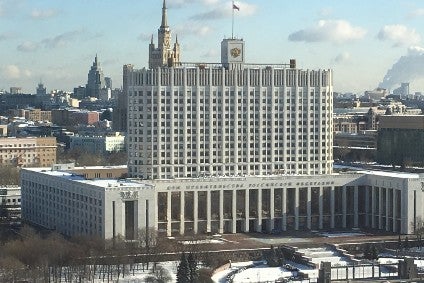
Ford Sollers purchasing says it is not seeing a great impact on the automotive sector of sanctions imposed on Russia as a recovering economy continues to propel the automotive sector upwards.
Russia endured four torrid years of plunging sales as economic confidence was shattered by a convergence of international economic sanctions imposed by the West in retaliation for the annexation of Crimea.

Discover B2B Marketing That Performs
Combine business intelligence and editorial excellence to reach engaged professionals across 36 leading media platforms.
The toxic financial brew was further strengthened by a triumvirate of high inflation, soaring interest rates and credit access difficulties, while Russia’s notorious volatility to fluctuating energy prices was exposed yet again as oil prices dropped.
But despite sanctions showing no sign of disappearing as Russia continues to occupy the world’s front pages, the economic situation is much improved especially with oil continuing to remain at more than US$70 a barrel.
Inflation has fallen while latent pent up demand and a hefty stimulus from The Kremlin to the auto sector has seen sales rise every month for more than a year, albeit from a very low base.
“Russia is recovering after a few years of downturn, we expect 10% growth this year,” said Ford Sollers VP purchasing, Nikolay Khodosevic at the recent Russian Automotive Forum in Moscow. “We hope 10% growth in 2018 is realistic if there is [government] support.
“There is a big question for us. Sanctions are still [there], but dialogue continues and we don’t notice the impact of sanctions on automotive that much. [Some] 95% of our contracts are in roubles. We work with our suppliers in roubles and at the level of Tier 2 and Tier N we look for further localisation. This is a good way to organise our purchases – we use the rouble as an anchor and watch the exchange rate.”
Ford Sollers exports seven components including stamping parts, plastic and rubber to the Ford plant in Romania, although the purchasing VP bemoaned bureaucratic Russian procedures to deliver parts.
“This has a very negative effect and my personal opinion is Romania will pick another country,” added Khodosevic. “If they can order things not from Russia, they will. We are working hard to resolve this issue, but still. We should work together with the government on developing this matter.”
The purchasing VP also outlined some of Ford Soller’s philosophy of working with its component partners as it looks to increase localisation.
“We always say what matters to us is a trusting relationship with our suppliers,” he said. ” We need to act fairly, honourably and we need to be predictable. It is important for us to meet government requirements because we work work under Decree 166 [mandated localised content] and with the engine plant under Decree 566. [There is a] lack of small and medium sized enterprises [of] raw materials.
“No matter what we do we were unable to make progress with stainless steel. We [also] often send our components abroad for testing and this is inefficient.”






